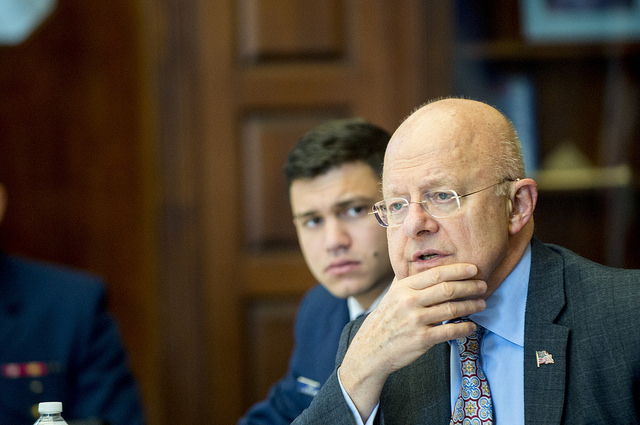by Paul R. Pillar
Donald Trump appears poised to make one of the most damaging moves yet of his presidency: to pull out of the multilateral agreement known as the Joint Comprehensive Plan of Action (JCPOA), which severely restricts Iran’s nuclear program and closes all pathways to a possible Iranian nuclear weapon. Iran is adhering—as inspectors of the International Atomic Energy Agency have repeatedly certified—to its obligations under the agreement. Despite this record, Trump’s administration already has been violating U.S. obligations, by withholding licenses for commercial transactions permitted under the accord and by actively discouraging other countries from conducting normal commerce with Iran. Trump has been chomping at the bit to withdraw from the JCPOA altogether. He reportedly has been restrained from doing so only by the strong urging of senior subordinates who understand that such a step would be contrary to U.S. interests and to the interests of nuclear nonproliferation.
With Trump’s dismissal of Secretary of State Rex Tillerson and National Security Advisor H.R. McMaster, some of the most significant restraints on Trump’s impulses are gone. The replacements, Mike Pompeo and John Bolton, have been just as viscerally opposed to the JCPOA as Trump and can be expected to encourage, rather than restrain, his destructive impulses.
Nothing good can come of a U.S. withdrawal from the JCPOA. The very best scenario one could hope for, in which the other six parties to the agreement keep some version of it going without U.S. participation, would mean isolation of the United States rather than Iran and additional divisions and acrimony between the United States and its allies. Other scenarios in which the JCPOA collapses—as suggested by some statements from Iranian officials that if the U.S. pulls out, so will Iran—are even worse. This would mean the end of all the special restrictions that the JCPOA placed on Iran’s nuclear program. It would mean Iran could reopen shut-down facilities, enrich as much uranium as it wanted to as high a level as it wanted, and get back to where it was before the JCPOA went into effect, which was within striking distance of building a nuclear weapon. And just as was the case before the negotiations that led to the JCPOA got under way, Iran’s likely response to more and more pressure from the United States would be to spin more and more enrichment centrifuges.
While all this was happening, the absence of the unprecedently intrusive international inspections provided under the JCPOA would once again allow Iran to continue its nuclear activities mostly in the dark. The Trump administration would have a new nuclear crisis, totally of its own making, at the very time that efforts to deal with the problem of North Korea’s nuclear weapons enter a critical period.
Trump’s animus toward the JCPOA, like much of the opposition to it, is rooted in political impulses that have nothing to do with the terms of the agreement. For Trump, the overriding motivation, as with much of the rest of his presidency, has been to undo whatever his predecessor did. With Bolton, there is the further inclination to oppose diplomacy generally and to look to military force as the solution to any foreign problem.
In times such as these, guidance should come from those whose dedication to U.S. national security interests is unquestioned, whose detachment from current political fights is sufficient for their advice to be shaped by long-term concern for those interests, and whose experience gives them deep understanding of the issues and problems involved. Such people are to be found in a group of more than 100 American national security leaders who, calling themselves a National Coalition to Prevent an Iranian Nuclear Weapon, issued today a statement supporting adherence to the JCPOA. The signatories include several dozen retired generals and admirals from the U.S. military as well as 31 former ambassadors, including five former U.S. ambassadors to Israel. There are also former members of Congress, both Republican and Democrat, including former chairs of the foreign relations and armed services committees. Former senior executive branch officials, and those who have studied intensively from the outside the problems of relations with Iran and of nuclear proliferation, have also put their names on the letter. These leaders would disagree among themselves on many issues, but they agree on the wisdom of maintaining the landmark agreement that is the JCPOA.






The biological warfares are obviously manmade! Most of the time this kind of warfare is formulated in a very sophisticated labs and made in large scale production by using various types of lethal virus or a combination of many of them! But fortunately delivery of the biological weapons is usually very challenging due to their short life and also due to many international rules and regulations prohibiting use of such weapons. However, lately formation and creation of the biological warfare has changed and we have successfully replaced viruses with ruthless and desperate and killing men! This introductory brings me to my point which is the creation of ISIS! This terrorist group is very much behaves like a biological virus that mutates and changes its form and can not be eradicated!
Those who are creating this kind of warfare are the real supporters of terrorism and not those who are trying to eradicate them!
When we see how easily alleged Western leaders can be hoodwinked into a war footing by a ludicrous false flag in the UK causing NATO/EU “leaders” to ignore any semblance of reason and sense to join in the scramble to vilify Russia, it may be that Trump, Bolton, Pompeo are able to carry out this disastrous damage if something is not done. Is there n way that sense can enter the discussion?